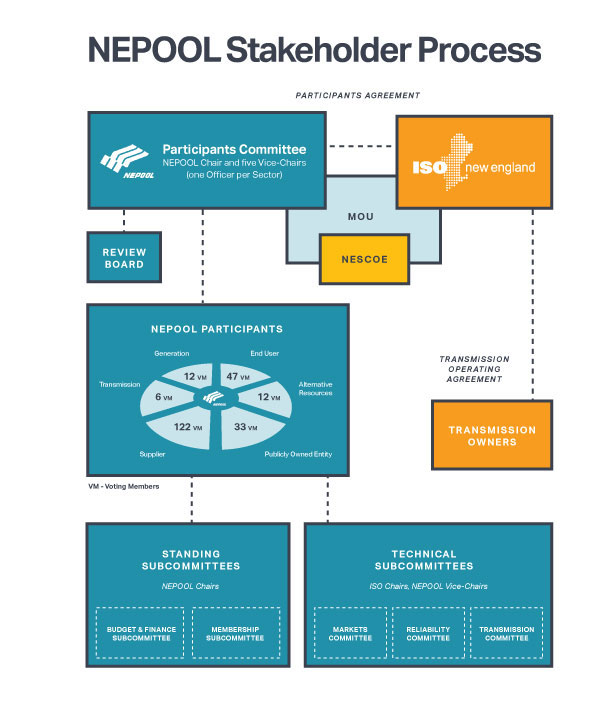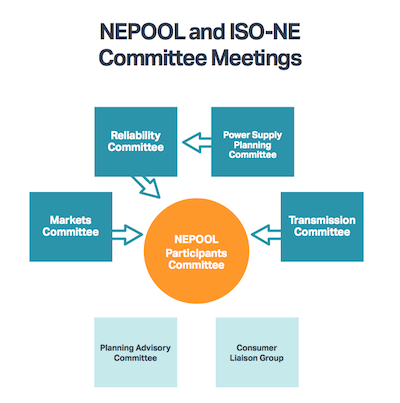NESCOE's Focus
NESCOE represents the interests of the citizens of the New England region
by advancing policies that will provide electricity at the lowest possible price over the long term, consistent with maintaining reliable service and environmental quality. Through NESCOE, the New England states actively engage, with a unified view, in regional electricity matters, identify and resolve issues proactively, and seek to avoid lengthy and costly litigation.
NESCOE is active, and expresses its views, in two areas: resource adequacy and system planning and expansion.
With respect to resource adequacy, NESCOE recommends policies and comments on proposed rule and tariff changes related to resource adequacy, demand response, and energy efficiency.
With respect to system planning and expansion, NESCOE recommends policies designed to ensure that resources are available to provide regional electric reliability and, where it is feasible and cost-effective, to eliminate persistent and costly congestion over transmission lines and enable interconnection of generation resources.
NESCOE’s professional staff and technical consultants allow the states to be engaged at a granular level with ISO-NE and market participants. This includes regular and active NEPOOL committee involvement, and therefore proactive issue identification and problem resolution.
NESCOE does not have unilateral authority to implement changes to regional tariffs or market rules. Rather, NESCOE must work within the FERC-approved ISO-NE/NEPOOL stakeholder process. This includes, for example, submitting proposed tariff and market rule changes to NEPOOL for consideration and an advisory vote before NESCOE files proposals with FERC for its process and action.
NESCOE also expresses the states’ collective viewpoints to ISO-NE and through the NEPOOL stakeholder process and at FERC, either supporting or protesting others’ proposals. NESCOE does not use litigation as a primary means to accomplish its objectives. It participates in litigation as necessary and defensively on behalf of consumers where proposals are particularly adverse to consumer interests.

